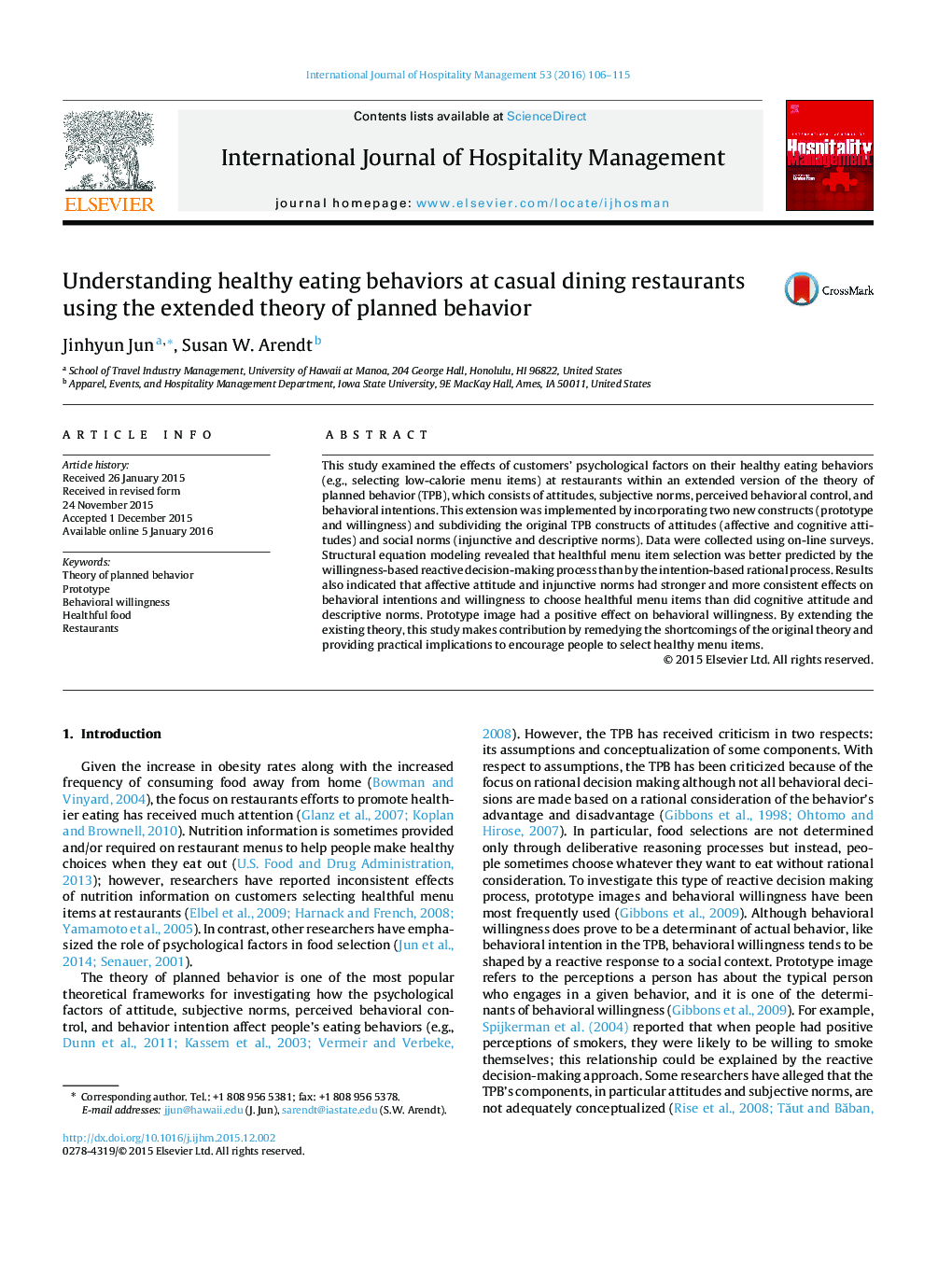| Article ID | Journal | Published Year | Pages | File Type |
|---|---|---|---|---|
| 1009232 | International Journal of Hospitality Management | 2016 | 10 Pages |
This study examined the effects of customers’ psychological factors on their healthy eating behaviors (e.g., selecting low-calorie menu items) at restaurants within an extended version of the theory of planned behavior (TPB), which consists of attitudes, subjective norms, perceived behavioral control, and behavioral intentions. This extension was implemented by incorporating two new constructs (prototype and willingness) and subdividing the original TPB constructs of attitudes (affective and cognitive attitudes) and social norms (injunctive and descriptive norms). Data were collected using on-line surveys. Structural equation modeling revealed that healthful menu item selection was better predicted by the willingness-based reactive decision-making process than by the intention-based rational process. Results also indicated that affective attitude and injunctive norms had stronger and more consistent effects on behavioral intentions and willingness to choose healthful menu items than did cognitive attitude and descriptive norms. Prototype image had a positive effect on behavioral willingness. By extending the existing theory, this study makes contribution by remedying the shortcomings of the original theory and providing practical implications to encourage people to select healthy menu items.
